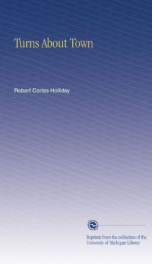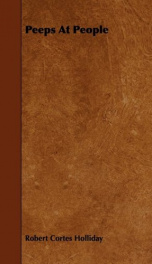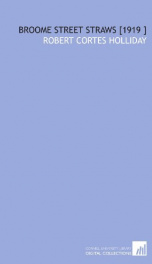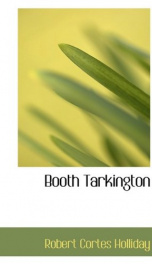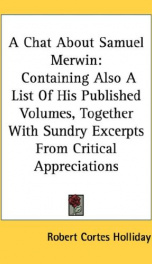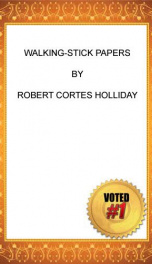men and books and cities
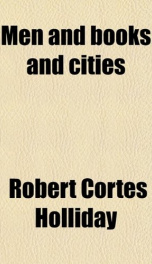
Purchase of this book includes free trial access to www.million-books.com where you can read more than a million books for free. This is an OCR edition with typos. Excerpt from book: CHAPTER V BOOTH TAHKINQTON DISCUSSES THE COSMOS NOW I have a theory of human life. It has been steadily growing on me for a number of years, the conviction that there is a truth in it. As I look back into my own life I cannot see that I ever did anything of my own volition. Of course, at the times when I have been confronted with two, or more, courses of action, I have always believed that, weighing the matter in my mind, I myself made a decision, based on my reason and experience. And now when such a situation arises I continue to think the same. But curiously enough, I recognize afterward that I did no such thing. Any one (it seems to me) can act only in one way, that is, in accord with his heredity, environment, and character. When he chooses (as he thinks he does) one way rather than another, and when the decision (so to call it) is a close one, it is that there is within him, something theweight of a grain or two of which turns the balance. He could not possibly have acted other than he did, as all his thoughts and actions can only be in character. I should think that any serious novelist would back me up in this idea, for having given a figure in his story heredity, environment, and character, doesn't he (the novelist), knowing his man, know beforehand exactly what he will do in any given situation? Mr. Tabkington (frowning): "Why, yes; of course." Me. Hill: "And can the novelist, if he has any artistic consciencecan you make a fictional character do this or that, as you select, in order, say, to lead the story to some kind of an ending you fancy?" Me. Tabkington (frowning harder): "Not now. I used to write stories that way. Used to get stumped, and" (broad grin) "try to think up what I'd have happen next. Now" (in deadly earnest) "I can only work from the...
Users who have this book
Users who want this book
What readers are saying
What do you think? Write your own comment on this book!
write a commentif you like men and books and cities try:
Do you want to exchange books? It’s EASY!
Get registered and find other users who want to give their favourite books to good hands!

